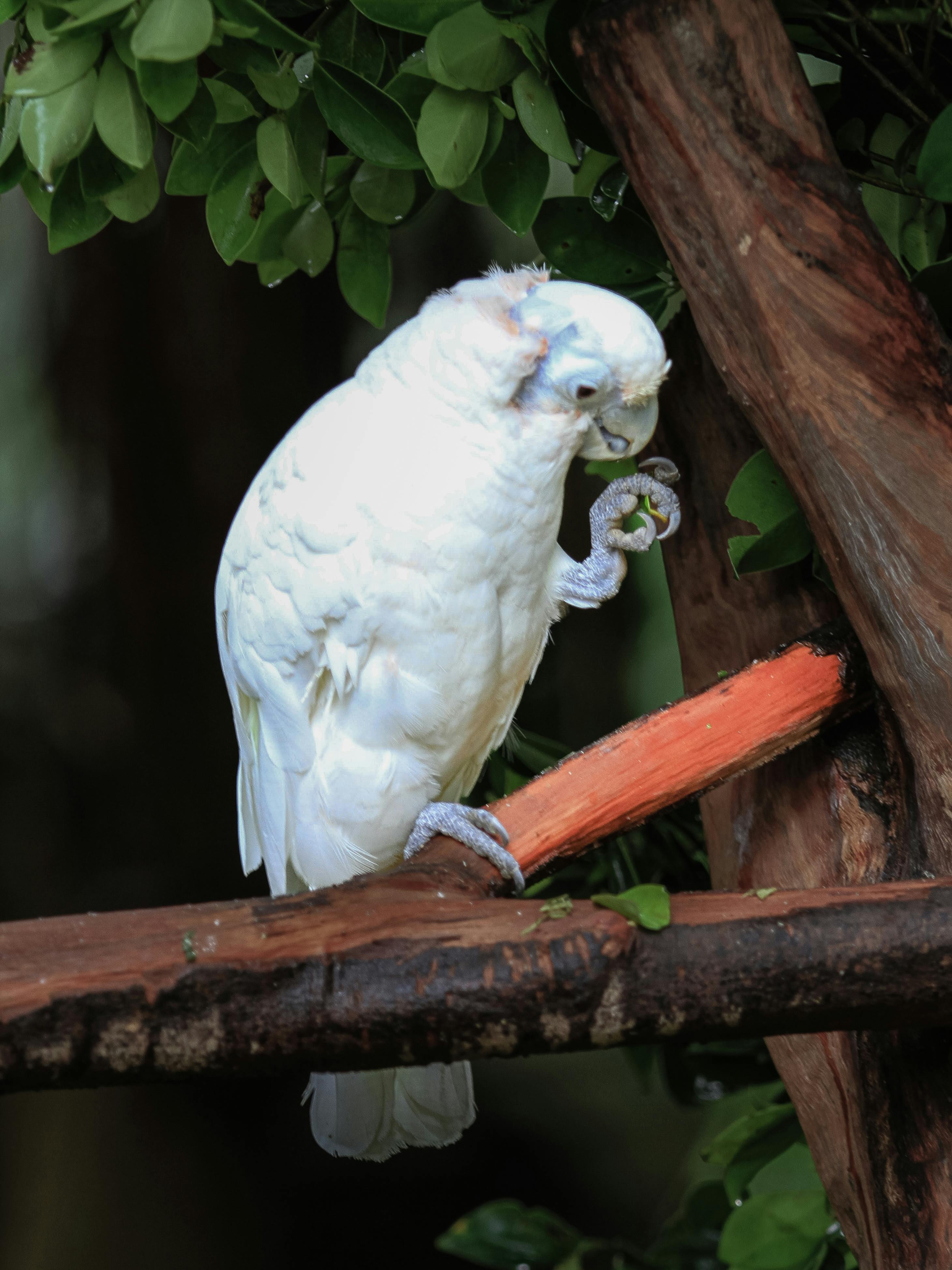Effective Ways to Understand Syrian Hamster Characteristics for 2025

Syrian hamsters, a beloved pet choice for families and individuals alike, are known for their distinctive characteristics and behaviors. Understanding these traits is essential for any potential owner, especially with the increasing popularity of this charming hamster breed over the years. In this guide, we will delve into the various characteristics of Syrian hamsters, their ideal care, diet, and habitat needs, as well as insights into their behavior and personality traits.
Owning a Syrian hamster can bring joy and companionship, but it also comes with responsibilities. From learning the differences between male and female Syrian hamsters to understanding their specific nutrition and social needs, each aspect of hamster care ensures a happy and healthy pet. This article will provide you with an extensive roadmap, covering topics from Syrian hamster care to recognizing behaviors to enhance your bond. Let's dive into what makes Syrian hamsters special!
Essential Characteristics of Syrian Hamsters
Understanding the essential characteristics of Syrian hamsters is crucial for anyone considering adopting one of these furry friends. These hamsters have unique traits that set them apart from other hamster breeds.
Physical Attributes and Size Considerations
Adult Syrian hamsters typically reach a size of 6 to 8 inches long. They are larger compared to dwarf hamsters, which makes them a popular choice for first-time owners seeking a manageable pet. Their coats come in various colors, including shades of golden, black, and cream, with different fur types ranging from short-haired to long-haired.
Behavioral Traits
One of the most fascinating aspects of Syrian hamsters is their behavior. These creatures are known for their curious and adventurous nature. They are predominantly nocturnal, meaning they are most active during the night, which aligns with their natural instincts. Understanding their behavioral patterns helps owners provide the right environment for enrichment and play.
Temperament and Socialization
Syrian hamsters are often described as solitary animals, especially compared to other small pets. They establish territories within their habitat, making it essential to keep them alone to avoid conflicts. Despite their independence, they can form strong bonds with their owners, manifesting through social behaviors such as climbing on your hand when called or showing excitement during playtime.
Cognitive Abilities
Studies suggest that Syrian hamsters possess substantial cognitive abilities. They can learn various tasks, navigate mazes, and even recognize their owner's voice. Engaging them with toys and activities challenges their brains, promoting their mental health and well-being.
Common Health Indicators
With a lifespan of 2 to 3 years, monitoring their health is vital. Signs of a healthy hamster include a shiny coat, active movement, and a hearty appetite. Being aware of these indicators can help owners identify potential health issues early.
Building on these fundamental characteristics, the next section will explore how to create a suitable environment that meets the needs of your Syrian hamster.
Creating the Ideal Habitat for Your Syrian Hamster
Having a properly set-up habitat is vital for the overall well-being of your Syrian hamster. A suitable living space allows hamsters to exhibit natural behaviors such as burrowing, climbing, and exploring.
Enclosure Requirements
Your Syrian hamster's enclosure should be spacious enough to accommodate their natural behaviors. A minimum cage size of 24 inches long by 12 inches wide is recommended. Wire cages with horizontal bars are ideal as they provide ample ventilation and opportunities for climbing.
Bedding and Substrate Options
Choosing the right bedding is important for both comfort and hygiene. Unscented paper-based bedding or aspen shavings are preferred, as they are non-toxic and absorb moisture effectively, ensuring a clean environment. Avoid cedar or pine shavings, as they can be harmful to their respiratory health.
Environmental Enrichment
Syrian hamsters thrive in environments rich in stimulation. Include hiding places, tunnels, and various toys to keep them entertained. For example, introducing a hamster ball encourages physical activity and exploration outside their cage, providing essential exercise.
Temperature and Location Considerations
Maintaining temperature stability is crucial. Ensure the cage is away from direct sunlight and drafts, ideally kept between 65°F to 75°F. A quieter area of the home will also allow your hamster to feel secure and less stressed.
Cleaning and Maintenance
Regular cleaning is essential to prevent odors and ensure your hamster’s health. Spot clean daily and perform a full clean every week, replacing bedding and disinfecting the cage with pet-safe cleaning solutions. This routine helps keep your hamster comfortable and healthy.
With a comfortable habitat established, the next section will discuss the vital components of a proper diet for your Syrian hamster.
Understanding the Dietary Needs of Syrian Hamsters
The diet you provide is fundamental to the health and longevity of your Syrian hamster. Understanding their nutritional requirements ensures they receive the best care possible.
Basic Diet Composition
A balanced diet for Syrian hamsters typically includes a mix of high-quality commercial hamster pellets, fresh fruits, and vegetables. Commercial mixes usually contain seeds and grains that supply essential nutrients, but it’s important to monitor portion sizes to prevent obesity.
Fresh Food Options
Fresh fruits and vegetables should be offered in moderation. Consider options like carrots, broccoli, and apples, which can be nutritious treats. Always wash produce thoroughly and remove any uneaten items to prevent spoilage.
Hydration Essentials
Access to fresh water is crucial. Provide a water bottle or a shallow dish that can be refilled daily. Changing the water ensures that your hamster remains hydrated and encourages better overall health.
Common Dietary Mistakes
Some owners may be tempted to feed their hamsters human foods, but many are harmful. Avoid foods high in sugars, fatty snacks, and citrus fruits. Educating yourself on the diet of Syrian hamsters helps you provide a healthier lifestyle for your furry friend.
Monitoring Weight and Health
Regularly monitoring your hamster’s weight is essential. A sudden increase or decrease in weight may indicate health issues that need to be assessed by a veterinarian. Setting a feeding schedule and sticking to it can greatly aid in maintaining a healthy diet.
With a proper diet secured, let’s move into understanding the behavior and temperament of Syrian hamsters further in the next section.
Exploring Syrian Hamster Behavior and Interaction
An essential aspect of hamster care is understanding their behavior. Recognizing their actions will enhance your human-animal bond and enrich their lives significantly.
Daily Activity Patterns
Syrian hamsters are nocturnal, meaning they are most active at night. This natural instinct can influence when you choose to interact with them. Engaging with them during their active hours, especially right before bedtime, encourages bonding and play.
Taming Techniques
To tame a Syrian hamster, begin with gentle handling. Start by letting them explore your hand before attempting to hold them. Use treats to foster a positive association with you, creating a trusting relationship.
Recognizing Stress Signs
It's vital to recognize signs of stress in Syrian hamsters. Common signs include excessive grooming, biting, or hiding. Understanding these behaviors can help you make necessary adjustments to their environment to mitigate stress.
Social Needs and Interaction
While these hamsters like to spend time alone, they can also enjoy interaction with their owners. Spend time playing or even talking softly to them, enhancing their social experiences. Cultural engagement through toys and activities keeps them mentally stimulated and happy.
Behavioral Problems and Solutions
Common behavioral problems include biting or excessive wheel running. Address these issues promptly by adjusting their habitat or handling techniques. Consulting with an expert can also equip you with behavioral strategies for a happier hamster.
With a solid understanding of their behavior established, let’s transition into the specific care tips needed for keeping your Syrian hamster healthy.
Essential Syrian Hamster Care Tips
An effective care routine is paramount in ensuring your Syrian hamster thrives. Understanding and meeting their specific care needs will create a supportive environment.
Handling and Bonding
Gentle daily handling fosters trust and familiarity. Regularly spend a few minutes each day with your hamster outside their cage to build a strong bond. Use treats to encourage them to come to you, reinforcing positive interactions.
Grooming and Hygiene
Grooming is essential, especially for long-haired Syrian hamsters. Regular brushing helps prevent matting and maintains a healthy coat. Bathe them only if necessary, using a damp cloth and pet-safe shampoo for cleaning.
Exercise Requirements
Exercise is vital for a hamster's overall health. Providing an exercise wheel is often a favorite activity, encouraging them to run and stay active. Additionally, allowing time outside of their cage for exploration in a safe area adds to their physical requirements.
Monitoring Health and Visits to the Vet
Regularly check your hamster for signs of health issues, and consult with a veterinarian familiar with small animals for routine assessments. Vaccinations and dental care are crucial components of hamster care.
Preparing for Life Stages
Recognize that Syrian hamsters go through various life stages, from a playful baby to an aging pet. Adapting care methods to accommodate each stage, such as dietary needs and habitat changes, supports their well-being throughout their life.
As we conclude this comprehensive look at Syrian hamsters, let's address some common questions that owners may have about their pets.
Common Questions About Syrian Hamster Characteristics
What is the average lifespan of a Syrian hamster?
Syrian hamsters typically live for 2 to 3 years, depending on their care and genetics. Proper nutrition and habitat maintenance can help maximize their lifespan.
Do Syrian hamsters get along with other pet species?
Generally, Syrian hamsters are solitary animals and do not typically get along with other hamsters or small pets. It's best to house them alone to avoid territorial disputes.
What are the main differences between male and female Syrian hamsters?
Male Syrian hamsters are often larger than females and may exhibit more playful behavior. Females can be more territorial and may require a bit more patience during handling.
How can I tell if my hamster is healthy?
Healthy Syrian hamsters have shiny fur, clear eyes, and are active, showing interest in their surroundings. Regular monitoring of their behavior and weight can also indicate health.
What toys are recommended for Syrian hamsters?
Hamsters enjoy toys that encourage exploration and mental stimulation, such as tunnels, chew toys, and exercise balls. Ensuring their toys are safe and durable is important.
Conclusion
Syrian hamsters, with their unique personality traits, require specialized care to thrive as pets. By understanding their behavior, dietary needs, and habitat requirements, you can provide an enriching environment for your hamster. Remember that each hamster is unique, and building a personal connection takes time and dedication.
For further reading on caring for your hamster, visit this resource or delve into this comprehensive guide. With your newfound knowledge of Syrian hamsters, you are well-equipped to provide a loving and healthy environment for your new pet!

